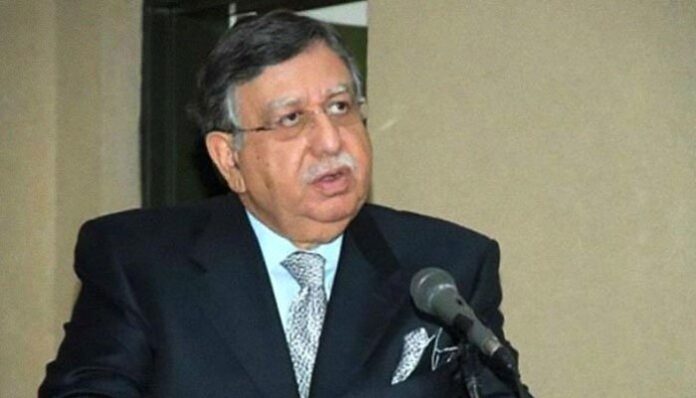ISLAMABAD: The government on Friday decided to appoint Shaukat Tarin as the Adviser to Prime Minister on Finance, as his six-month tenure as financial adviser expired.
Local media reports claimed that Prime Minister Imran Khan is expected to give the approval regarding the change in Tarin’s designation soon.
The finance minister was supposed to get elected as a senator — a prerequisite to continue as finance minister — as the six-month time limit to elect him as a member of the Parliament is expired on October 15.
It may be recalled that Tarin had been appointed as finance minister by Prime Minister Imran Khan in a federal cabinet reshuffle, replacing Hammad Azhar — only a few weeks after he was given the portfolio.
As the finance minister’s six-month term ends, as per law, Tarin will not be able to chair the Economic Coordination Committee (ECC) and other cabinet committees. However, he will get the finance ministry portfolio back after being elected as a senator.
On the last day of his tenure, Tarin also concluded policy talks between Pakistan and the IMF.
Meanwhile, while addressing in a seminar on Pakistan’s Economy held at the Embassy of Pakistan Washington DC, October 15, Shaukat Tarin highlighted the economic priorities of the government, emphasising that Prime Minister Imran Khan is committed to inclusive and sustainable economic growth that benefits all segments of the society especially the poor.
He said that the Pakistani government has established 24 special economic zones (SEZs) under CPEC to attract foreign investment and also shared that prudent fiscal reforms have helped to improve tax to GDP ratio, bring down current account deficit and fiscal deficit while improving revenue generation.
Earlier, Ambassador Dr Asad Khan gave a brief overview of the state of bilateral ties between Pakistan and the US. He referred to recent ministerial level exchanges between the two countries, with engagement on energy, trade, climate change and security.
Other panelists included IBA Executive Director Dr. S. Akbar Zaidi, who shared an academic perspective on the state of Pakistan’s economy.
He said academic institutions such as IBA have produced many high-quality economists and even today, IBA was grooming professionals and business executives who will play a vital role in Pakistan’s economic future.
The seminar was followed by an interactive session in which the audience comprising prominent community members, professionals from IFIs, acedemics and students from DMV area asked questions which were answered by the finance minister.




